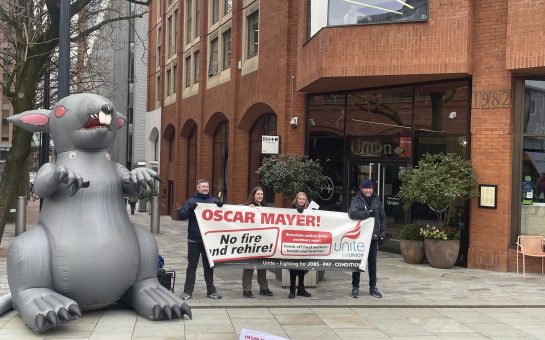It will not have been lost on many observers that the seemingly endless line of nationwide Labour Hustings have been consistent with a party that looks set to back a radical redistribution of power and opportunity away from the clutches of Whitehall.
Labour’s humbling at the last General Election was the party’s worst defeat since before the Second World War. However, the lack of grovelling or, indeed, magnanimity in the face of defeat is an admirable show of defiance from a movement that seems increasingly intent on understanding its shortcomings from last time around.
Labour is not a party that appears particularly content with simply licking its wounds for the next four years.
The race to replace outgoing Labour leader Jeremy Corbyn now has been whittled down to three candidates.
Sir Keir Starmer, the current favourite, faces stern competition from Northern challengers Lisa Nandy and Rebecca Long-Bailey. Following the turbulence of the tenure of Jeremy Corbyn as Labour leader, a time infamously besmirched with party in-fighting, it appears that a genuine truce of sorts has been called as the party seeks to reverse its ailing fortunes, with calls for ‘unity’ a consistent message throughout.
Clearly, the intent to reverse the result of December’s ignominious election – a feat never achieved within the space of one term in British politics – outweighs the desire to indulge in highlighting the divisions that exist within the party itself for any of the remaining leadership insurgents.
Last night, the insistence from all three candidates that Labour did not understand the electorate properly at the last general election was an omission free from Cummings-esque spin. It comes straight from a place of deep, unbridled regret.
At Manchester Central, Lisa Nandy admitted she felt that the politics of ‘heart versus head’ is now dead. Rather, ‘integrity’ is what she feels is the main concern for voters.
At first, it is easy to simply receive Nandy’s comment as a slight against the growing accusation that Labour keep on ‘winning the argument’ as opposed to winning elections. However, clearly her protestations represent something more nuanced. Rather, it is an acceptance that voters essentially want to know what they are, in fact, voting for.
Here at Manchester Central ahead of the latest Labour Leadership Hustings for @MM_newsonline.
Five candidates have now become three with Lisa Nandy, Keir Starmer and Rebecca Long-Bailey vying to replace Jeremy Corbyn as party leader. pic.twitter.com/cdsRdmUjJm
— Tom Beattie (@ThomasRBeattie) February 25, 2020
A lack of clarity on matters of policy plagued Labour throughout the tenure of Jeremy Corbyn as leader, something the former Shadow Education Secretary clearly senses. The lack of coherence, with Brexit a prime example, clearly perturbed voters in December.
The language of Nandy and Long-Bailey, in particular, portrays a movement that has been shocked into action. The ideological approach of both will not have changed from the last general election, however, both clearly acknowledge that simply winning the argument is not enough. This is a party that needs to win elections.
In truth, where Keir Starmer fails to inspire, as again was the case last night, Lisa Nandy and Rebecca Long-Bailey have had seldom issues. I would offer, the reason they are unperturbed, authentic and gritty is because they are products of their respective northern communities, where those values are held in such essential regard.
This is a country that is chronically – perhaps fatally – divided. To suggest that Brexit may have already rung a death knell on this country as we once knew it is possibly not as reactionary a statement as it first appears.
Regardless of one’s political persuasion, the reason for this is, quite simply, Britain must now radically change.
Lisa Nandy admitted last night that many of her constituents in Wigan in Greater Manchester, viewed leaving the European Union as an anti-establishment protest vote. Without getting into the complexities of this as a political position, the reality is that faith in those who currently walk the corridors of power in Westminster and, of course – prior to Britain’s exit from the EU – Brussels, is at an all time low in parts of this country.
Rebecca Long-Bailey twice made the point last night that Labour’s election defeat, in some ways, has its roots forty years in the past, as opposed to four, however.
As much as the 2016 EU Referendum revealed discontent towards the Britain’s political establishment, Long-Bailey contends that Labour now needs to ask itself how these communities were left with such a deep distrust in the party’s ability to speak and act on their behalf.
Labour’s lengthy and comprehensive manifesto at December’s General Election outlined policies that would have, undoubtedly, been transformative for Britain. However, as those within the party are beginning to acknowledge, so many communities had no faith in Labour to ensure their promises became a reality.
The same communities that were let down by the Conservatives under Thatcher, for instance, feel not enough changed for them during New Labour’s 13 years in government either.
Understandably, for those within the party who served as part of the Government under Tony Blair and Gordon Brown this is a particularly hard and bitter pill to swallow. However, as the old adage goes – bluntly, sometimes the truth hurts.
It seems that large sections of the public did not so much as put their faith in Boris Johnson’s Conservative Party at the last election. The feeling now is that those in seats such as those situated in the so-called ‘Red Wall’ failed to put their faith in Labour.
And there lies the true existential threat now facing the party itself, something Nandy herself admits.
For a fourth general election in a row, Labour failed to come anywhere near winning a majority.
The answer, for both Nandy and Long-Bailey, lies in democratising power and opportunity away from London. If Brexit was a vote against the political establishment for many, as Nandy contends, then it is clear that both candidates feel the solution lies in stripping those in Westminster of their ability to make decisions on the behalf of the sort of constituencies they represent.
Throughout proceedings at Manchester Central, it was clear that the new direction of the party – on the issue of HS2, at least, in the case of Starmer – is one that is relentlessly intent on delivering change in the communities figures such as Long-Bailey feel have been failed so consistently in the past 40 years.
There is little doubt that the legacy of Thatcher’s centralisation of the economy during her Premiership is one of the primary causes of the disassociation felt in Northern towns, particularly, in relation to Westminster.
However, the conversation now has to be about the here and now.
The stark reality facing Labour is that seats in former Labour heartlands such as the mining towns of Workington and Bolsover, so heavily impacted by the monetarist brutality of Thatcherism, cannot now simply be taken for granted, as they have been in the past.
In a way, that is what was so humbling for the party back in December. The defeat meant Labour needed to press the reset button. Now Labour members must ensure the party gets its next step right.
In Rebecca Long-Bailey and Lisa Nandy, Labour undoubtedly have two of the brightest, most impressive minds in frontline British politics.
In current frontrunner Keir Starmer, they have one of Westminster’s most respected figures. However, therein lies Starmer’s problem.
If Labour are to deliver the democratisation of power and opportunity Rebecca Long-Bailey and Lisa Nandy both forecast, it is increasingly clear that the party requires a leader that is an organic representation of the very communities the Labour Party has always represented but no longer is able to take for granted.



